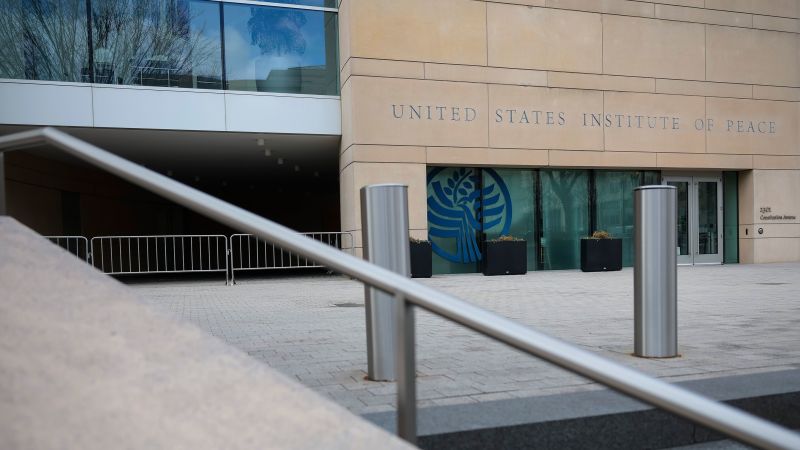
Employees at the United States Institute of Peace (USIP) have faced another wave of mass firings, following a recent federal court ruling that had previously deemed the Trump administration’s earlier actions unlawful. On July 11, 2023, multiple employees received termination notices as part of a decision by the Department of Government Efficiency (DOGE), which had been installed at USIP to oversee its operations.
Former senior adviser for strategic engagement at USIP, Liz Callihan, described the situation as a continuation of DOGE’s “cruel indifference” toward the dedicated workforce at the institute. She emphasized that these firings jeopardize significant work in training, education, facilitation, and research related to conflict resolution, which is pivotal for global peacebuilding efforts.
The series of firings began on a Friday afternoon, echoing a similar pattern from March 28, when employees received their first termination letters. This timing, according to Hodei Sultan, who has worked with USIP since 2009, appears intentional and contributes to a sense of “mental torture” for those affected. Sultan was part of the “landing team” tasked with rebuilding USIP’s operations after prior layoffs.
The legal landscape surrounding these firings is complex. A federal judge ruled in May that the Trump administration had unlawfully removed the USIP board, leading to the conclusion that actions taken by DOGE were “null and void.” Yet, a federal appeals court later stayed that ruling, enabling DOGE to proceed with the latest round of layoffs.
The institute, which was established by Congress in 1984 as an independent body, plays a crucial role in promoting international peace and conflict resolution. It has recently faced significant challenges as the Trump administration seeks to redefine the role of the United States on the global stage. In addition to the USIP firings, more than 1,300 employees were dismissed from the State Department, affecting various programs related to countering extremism, aiding Afghan refugees, and addressing critical issues such as women’s rights and climate change.
Callihan stated that the recent actions reflect a systematic dismantling of an institution authorized by Congress to advance peacebuilding initiatives. She noted the emotional toll these firings have taken on staff, describing the experience as “devastating” amid the ongoing uncertainty and upheaval.
The Trump administration’s approach has drawn criticism for its impact on U.S. credibility and influence globally. Sultan voiced concerns that the U.S. is “self-isolating” and distancing itself from vital foreign assistance programs that play a key role in projecting soft power and establishing the U.S. as a reliable partner on the world stage.
As the situation at USIP continues to evolve, the implications for conflict resolution efforts worldwide remain uncertain. The response from the White House regarding these firings has yet to be disclosed, as CNN has sought clarification on the administration’s intentions moving forward. The ramifications of these decisions will likely resonate far beyond the immediate workforce, affecting U.S. standing in international relations and peacebuilding efforts.







